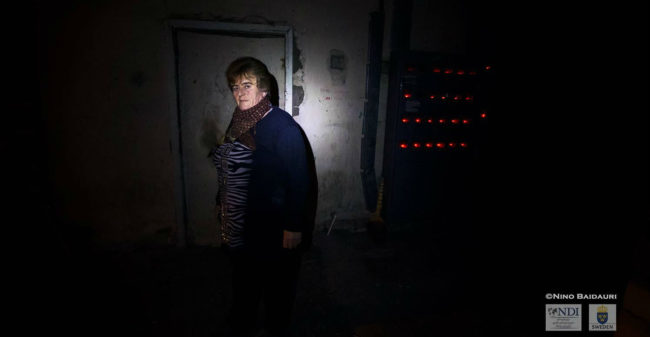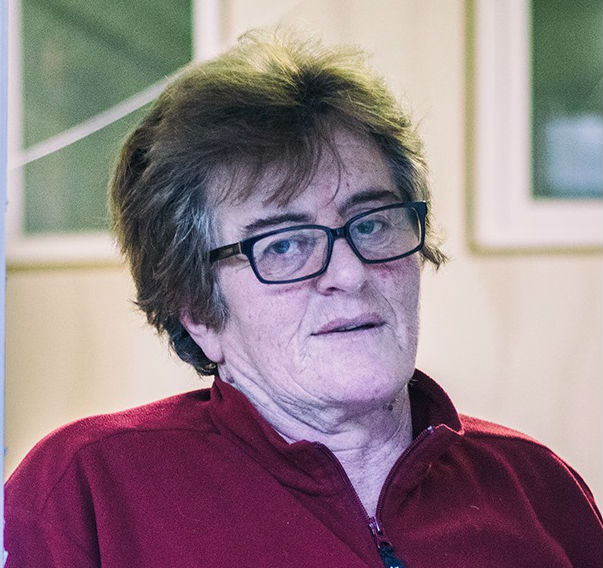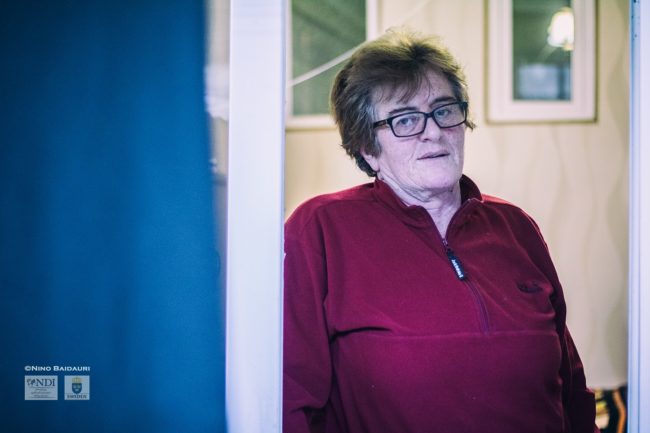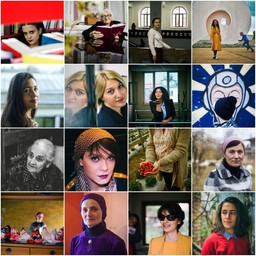![[Voice from Tbilisi] Women of Georgia — Madona (Margarita) Naroushvili, 60](/_next/image/?url=https%3A%2F%2Foc-media.org%2Fcontent%2Fimages%2Fwordpress%2F2019%2F12%2Fwomen-margar.jpg&w=3840&q=90)

 Women in Georgia very often lack a voice of their own. Their opinions, feelings, dreams, aspirations, and achievements can be conveyed by others, often the men around them. The Women in Georgia project gives a voice to these women, allowing them to tell their own stories — in their own words. The project collected 150 distinct stories from women throughout the country. OC Media brings you a selection of these stories, translated into English and Russian. Below, in her own words, Madona Naroushvili.
Women in Georgia very often lack a voice of their own. Their opinions, feelings, dreams, aspirations, and achievements can be conveyed by others, often the men around them. The Women in Georgia project gives a voice to these women, allowing them to tell their own stories — in their own words. The project collected 150 distinct stories from women throughout the country. OC Media brings you a selection of these stories, translated into English and Russian. Below, in her own words, Madona Naroushvili.
‘I used to work in a carpet factory in Senaki as a weaver. This was quite hard work. There were only men working in the factory; I was the only woman there, and I operated a huge machine. I used to weave big carpets which were made by the plant. I liked working in the factory — I was not good at doing things women are “supposed to” do. I had a good salary, earned well, and I worked shoulder to shoulder with men. The men working in the factory did not find this strange; my work was absolutely appreciated. They gave me tickets to take trips twice a year, there were bonuses, allowances, prizes. Had things not changed, I would have been in parliament today. I did not feel from any of my fellow male co-workers that I was a woman and that I could not do something for that reason. We were all friends. I was the type of a person who could adapt well to that type of a job. Similarly, I have got used to being a bus driver now. “He is our brother”, they used to say about me. I would be rather upset if I did some “womanly” thing and somebody did not like that. I’d rather hear people saying that I am tough like a man.’
‘When it became difficult to support my family in Senaki, I went to Tbilisi to attend tram driving courses. After the training course I could become a tram driver and have a large salary. It was a six-month course. Starting from security, they taught us everything in detail. Driving a tram is rather difficult to study for — it is all about electricity. You have to work with 660 volts, so you should know how to handle a tram and deal with any situation. We had a rather strict studying schedule. One month after completing the course, they gave us jobs. There was my cousin, two other women, and me. The number of women was limited, and most of them were Russians. People had a rather negative reaction towards women, “Don’t you have someone to take care of you? Why should Georgians drive a tram?!” We were often subjected to verbal abuse and negative comments. They said we had probably been thrown out of our house. I felt rather bad about this. Even though I worked honestly, did my job honestly, and did not harm anyone, I was humiliated like that. One woman passenger once told me, “Don’t you have anyone to take care of you? Why should such a good-looking woman be here? I would not let my daughter work here!” I was rather young, 22. I told her that it did not matter where a person worked, what mattered most was that they do their job well. “You poor mutt! You have probably been thrown out of your house”, she snapped at me.’

‘When the tramway infrastructure was removed, I started driving a bus. My work was greatly appreciated, they treated me very well and tended to my every need. The City Hall offered me to let me undergo training courses to drive the new buses that were expected to arrive in a couple of months. I agreed immediately. I agreed to attend the training course, pass the test, and drive the bus if they thought I was a suitable candidate. I had a lot of experience in communicating with people. My managers knew everything.’
‘Before I started working as a bus driver, I drove passengers to Moscow and Baku, and did not have any difficulty in starting a new job in this respect either. At the moment I drive Bus #121 — I drive passengers from Didube to Zahesi. From time to time, when I become bored, I move to some other bus route. I am going to do that soon.’
‘I feel more at home when I am at the garage than when I am in my house. I am fully relaxed. When I go out at 5:30 in the morning, sometimes I come back at half past one or half past two the following morning. We finish our work at midnight but when we get back to the garage, we have to put the vehicle in order. We have to clean it and get it repaired if needed.’
‘Some passengers are rather good, others rather bad. Some of them come from home very angry and look for reasons to fight with someone about even the smallest thing. For example, one man started arguing because the bus was not warm. I told him that my home was warm and he could come and stay warm there. People laughed. Sometimes I joke with kids telling them that I will pull their ears, they joke back saying they will do that themselves and laugh. I cannot joke with men of my age, they misunderstand everything. It is impossible to talk to some of them at all. I have got used to working. I get more tired when I am home. We only have a 22-minute break during the day. I sometimes buy Khachapuri or cookies. I got used to that so much that I eat solid food at home too.’
‘I have always dreamt of travelling. I do not have so much money to travel when I am old, as they do abroad — they save and then travel when they get old. I would like to visit Paris.’
‘Our city should deal with problems in public transport. Public transport should be attractive for people to travel by; it should be put into shape. Traffic problem should also be addressed to prevent traffic jams. In this case, people will move from their vehicles to public transport.’







